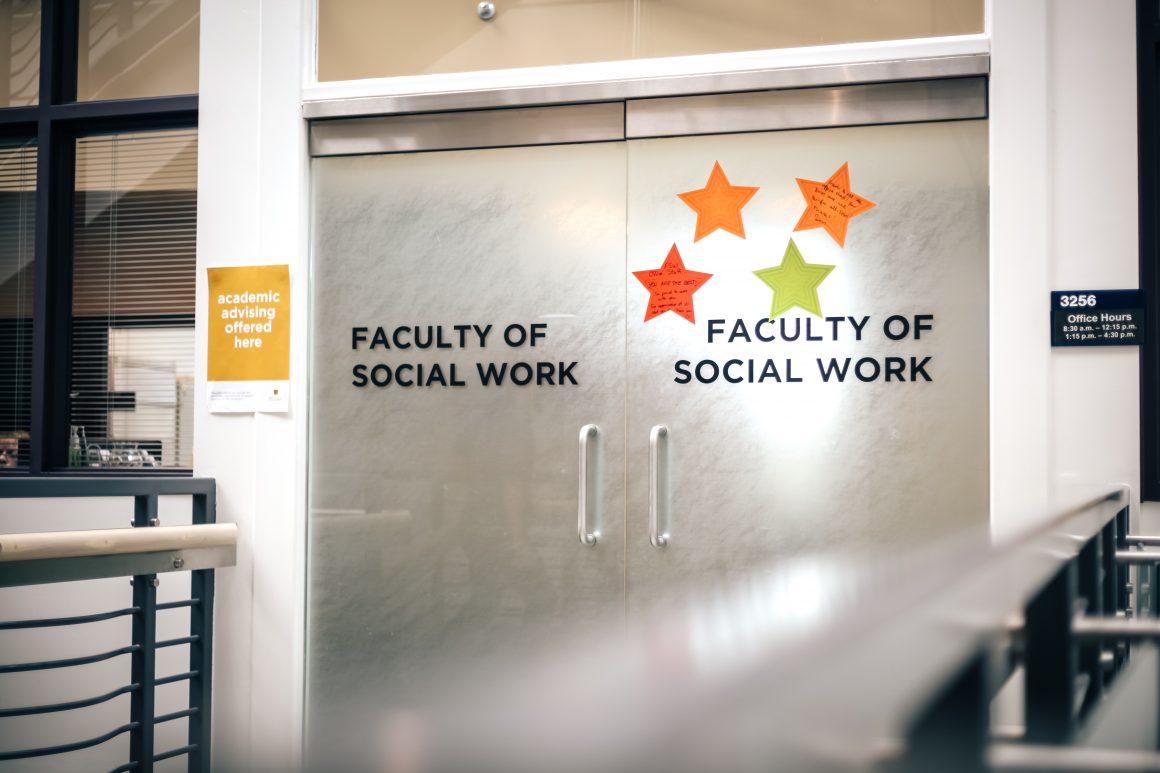
Undergrads raise concern over new Masters of Social Work timeline
By Matty Hume, September 27 2018 —
When the winter 2018 semester came to a close, the Faculty of Social Work at the University of Calgary — the largest social work faculty in Canada — announced significant changes to their master of social work (MSW) program, including a spring start date.
The changes quickly drew concern from undergraduate social work students according to Marissa Bennett, the Students’ Union Faculty of Social Work representative. The primary concern is that due to the new May start date for MSW, undergraduates who planned to begin their MSW directly after June convocation will now have to wait a full year before embarking on graduate studies.
“In my cohort’s case, all of them want the direct-entry option [into the MSW program], which they don’t have access to until a year after they’ve convocated,” Bennett said. “So now, every year this is going to happen where the graduating class, if they want to enter their direct-entry masters, will have to wait.”
According to Bennett, the new MSW timeline is a shock to social work undergraduates who have spent four years of study with a direct entry into graduate studies in mind and now face an unplanned gap year.
“I do think one of the effects of this is if [students] have their hearts set on doing their masters right after their undergrad, they will go to a different university to do that now,” Bennett said.
The new May start date is not the only change to the MSW program. The Faculty of Social Work has also implemented a ‘stackable’ Graduate Certificate pathway towards an MSW, which features a traditional September start date.
However, there is a clear difference between the classic ‘direct-entry’ MSW program and the new stackable alternative. The former can be completed in either 12 or 24 months, each consisting of 12 courses — an increase from 10 courses previously — that result in a MSW. The latter requires students to apply for and complete two separate certificates, each consisting of four courses, before being eligible to apply for the MSW program and complete the four remaining courses required to receive a MSW.
Facing the uncertainty of three separate applications for a September start is still undesirable, said Bennett.
“The direct entry [is] one application. You apply and then you get in, you don’t have to apply to anything else,” Bennett said. “The stackable masters is available for a fall start date, but in my cohort’s case, none of the students who wanted to go into their masters right after their undergrad — they didn’t want that option.”
According to Jackie Sieppert, Dean of the Faculty of Social Work, the changes are the result of careful deliberation and consultation and reflect the unique nature of an education in social work.
“The key reason we have moved the start of the master of social work program to a spring start is related to field education or practicum placements,” Sieppert said in a statement to the Gauntlet. “Practicum placements are a cornerstone of social work education. Students take the knowledge and theory that they’ve learned and put it into practice, working in the social work field of their choice, under supervision.
“Starting the program in September would have meant practicum placements would have occurred in the following spring/summer semesters,” the statement continued. “This would create a critical issue regarding the availability of organizations and qualified social workers willing to supervise students.”
In addition to the significance of practicum availability, Sieppert said that for a career in social work in particular, experience counts.
“Social work is a profession that sees our graduates work with people and communities who face many forms of trauma, hardship and challenges,” Sieppert said. “Having experience working with clients or in the various fields that social workers are employed provides education and experience that you just can’t get in school. This is why, as a professional degree, social work is different from many other education pathways.”
According to Bennett, undergraduate social work students are nonetheless disappointed with the lack of direct communication from the faculty.
“This is affecting at least 10 people in my cohort. [They] are saying that it has affected their entire masters application process. It’s affected where they look [and] what they’re considering doing,” Bennett said. “[For] students in my cohort, this was so upsetting for them because although the information was made public, students were not contacted directly. We did not get direct communication that this was happening.”
Ultimately, Sieppert maintains the May start date for the direct-entry MSW program is ideal for a career in social work.
“Once you have had the opportunity to apply what you learned as an undergraduate in the field, you begin to understand what you’d like/need to know more about, as well as the areas of social work practice that are of most interest to you,” Sieppert said. “In this light waiting until the spring following graduation is, perhaps, still an accelerated time-table for a professional social worker.”
